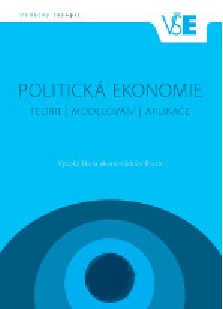Vliv agresivního daňového plánování na inkaso daně z příjmů právnických osob
Impact of Aggressive Tax Planning on Collection of Income Tax on Legal Entities
Author(s): Jakub Ječmínek, Lukáš Moravec, Gabriela KukalováSubject(s): Politics / Political Sciences, Social Sciences, Economy, Financial Markets
Published by: Vysoká škola ekonomická v Praze
Keywords: BEPS; tax avoidance; tax losses; tax haven; profit shifting; tax evasion
Summary/Abstract: In this paper, estimates of tax losses as a result of aggressive tax planning are presented using two different methodological approaches. While the International Monetary Fund (IMF) methodology addresses profit shifting and corresponding tax losses across the European Union, the United Nations Conference on Trade and Development (UNCTAD) methodology uses FDI data and a list of so-called offshore financial centres. According to the IMF methodology, the annual tax losses are about EUR 69–105 billion for the EU-28. According to our calculations, the Czech Republic achieves negative losses (tax revenues) of CZK 15 billion per year, probably due to the low effective tax rate (16.4%) and investment incentives. On the other hand, the UNCTAD methodology implies annual tax losses for a given EU member state of about EUR 18 billion. Because of limited data availability, we estimated the regression model for only 22 EU member states for the period 2013–2016.
Journal: Politická ekonomie
- Issue Year: 68/2020
- Issue No: 1
- Page Range: 3-17
- Page Count: 15
- Language: Czech

